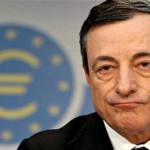Quantitative easing: what is it and what does the ECB want to achieve with it?

The European Central Bank (ECB) started at the beginning of the month with its controversial quantative easing programme, buying government bonds with the goal of lowering interest rates, increasing inflation and kick-starting economic growth. ECB president Mario Draghi meets the EP’s economic affairs committee today to discuss the initiative. Read on to find out more about how it works and watch the debate live on our website.
Why the ECB has embarked on quantative easing
Quantitative easing is the latest and most controversial of a number of so-called unconventional monetary policy measures that the ECB adopted once it could not reduce its key interest rate any lower.
Although the ECB has lowered interest rates to near zero, making it very cheap for banks to borrow money, it has not led to banks lending more to companies or to consumers spending more. As little spending and investment means dangerously low inflation and weak or non-existent growth, the ECB has been searching for other means of injecting money into the economy. Buying government and private sector bonds is one of them.
How it works
A bond is a promise by the borrower – the issuer of the bond – to repay debt with interest to the lender, the buyer of the bond. If there is not much interest in the bond, for example because people perceive it as risky, borrowers have to offer high interest rates to convince lenders to buy their bonds.
With quantative easing, the ECB has declared itself willing to buy significant amounts of government and private sector debt. This means there is a significant lender on the market. Interest rates on sovereign debt have already begun to drop, making it easier for cash-strapped governments in the EU to obtain funds.
By buying sovereign and private debt on secondary markets, the ECB is in effect printing money. Cash ends up at the bank accounts of institutions and individuals that have sold securities to the ECB. The ECB hopes that sellers of the bonds will use this money to invest in riskier ventures that earn more interest than cash or to spend it on other things, which would boost economic growth, employment and inflation.
The US central bank and its Japanese and British counterparts have been engaged in buying government and private sector securities for some time now. Now they are joined by the ECB, the last major central bank to do so.
Source: European Parliament



























